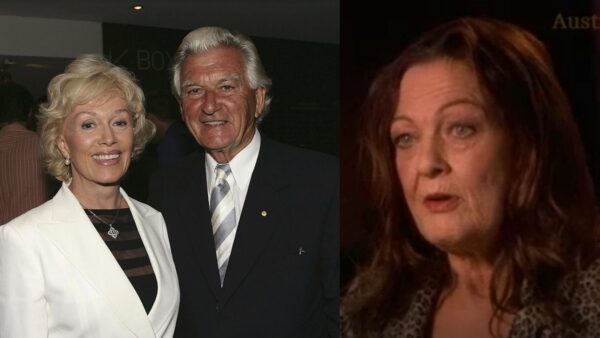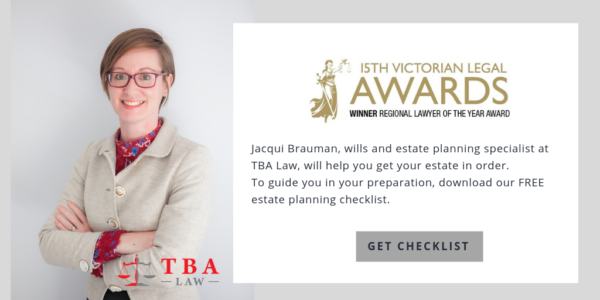How to Prevent a Will Dispute, Like What’s Happening to Bob Hawke’s Will
After his death, Former Prime Minister Bob Hawke’s family is in turmoil over his Will.
Bob Hawke died in May 2019, at the age of 89 years. He had three children to his first wife, Hazel. He had left his first wife for his second wife, Blanche d’Alpuget, which caused a lot of upset for his children. Blanche had a son of her own, but Bob and Blanche had no children together.

There have been reports that Bob’s three children, and Blanche’s son, all got $750,000 in a settlement separate to the Will, although this is not clear. But under his Will, Bob wanted the residue of his estate, is all going to his widow, Blanche. His estate is over $15m.
It has been reported that Bob’s youngest daughter, Rosslyn Dillon, has engaged lawyers because she believes that $750,000 is insufficient provision and she wants more from the estate. If the claim proceeds, it will be in the NSW Supreme Court.
Bob Hawke gave his children and his step-son some money. He wanted to take care of his widow. He would have wanted his wishes respected – but they’re not being respected.
Rosslyn is causing turmoil, emotionally and financially, whether justified or not. Presumably, Bob Hawke’s ex-wife got a financial settlement when they divorced. His children won’t miss out – and it was likely that Blanche would have left his children most of her estate once she died. It’s not likely that she would have given her son the whole lot. But by disputing the Will now, Rosslyn is changing all that!
How can you help prevent the same thing happening to your estate?
There are several strategies that can be adopted – none particularly cheap or easy – but they all essentially involve minimising the assets in your estate that could be contested. These strategies don’t work in all States, such as New South Wales, where there are claw back provisions, but they will work in Victoria and Queensland and most other parts of Australia.
Prior to new legislation passing on 16 October 2014, Victoria was one of the most flexible States in Australia for people making a claim against a Will. The eligible people weren’t specified, so it was anyone really who believed that the deceased person had an obligation to provide them with some maintenance!
From 1 July 2015, we finally have a list of eligible people who can make a claim against a Will in Victoria, and the list excludes lots of people who might have otherwise claimed. This provides some more security for willmakers. This first tier of eligible people are basically spouses and children. If they are excluded from a Will, or inadequately provided for, then they can make a claim against a Will. This includes step-children and people who are treated like children, and also includes ex-spouses who still have a right to commence proceedings under the Family Law Act.
The second tier of eligible people also need to show that they were wholly or partly dependant on the deceased person for proper maintenance and support. These people include a grandchild, a registered carer, a spouse or partner of a child of the deceased, and a member of the deceased’s household. This list, and the requirement of dependence, is a dramatic limitation on the people who could previously claim against a Will, and those who were willing to give it a shot just to get a ‘go-away’ payment.
So, what else can you do to reduce the chance of a claim against your estate?
The gifting property now strategy
You can reduce your estate by giving away as much as you can now. There will be stamp duty consequences, potentially capital gains consequences, and sometimes Centrelink consequences. But these may all be cheaper in the long run, if you want to make sure you cut someone out of inheriting anything. The other risk is that you lose control of the asset once you have given it away, so if this involves your primary residence and you give it away, you will want to make sure you secure an agreement to be able to keep living there.
The joint name transfer strategy
Instead of completely giving property all away, you should be aware that any property that you jointly own with someone else will automatically pass to them on your death, and not form part of your estate. So joint bank accounts will end up going to the survivor, and jointly owned shares or real estate will transfer to the joint owner, not into your estate. You have the same issues of stamp duty, capital gains, and Centrelink consequences. But at least you still retain some ownership, so you are not at the complete mercy of the new owner.
The trust transfer strategy
Instead of giving property away, or making someone else the joint owner, you could create a number of trusts for each child or beneficiary. You would transfer the inheritance for each child into their trust whilst you were still alive. Then you can be the trustee of the trust to retain control, and make your respective children the beneficiary of each trust. Your control of the trust would transfer to your respective children once they die. None of this will be subject to your estate. You would obviously not set up a trust or anything for the person you wanted to exclude.
There are still stamp duty and capital gains consequences, and potentially Centrelink consequences. There are also additional cost with administering a number of trusts. But if your estate is substantial enough to justify this strategy, and it saves money in the long run, then this could be the strategy for you.
For more detailed advice, please contact our office for an appointment with our wills and estates specialist.






Leave A Comment